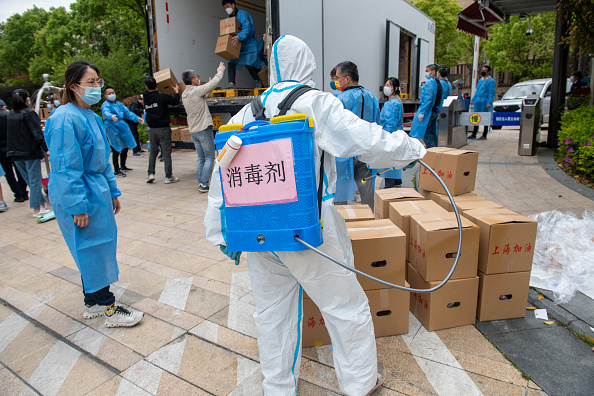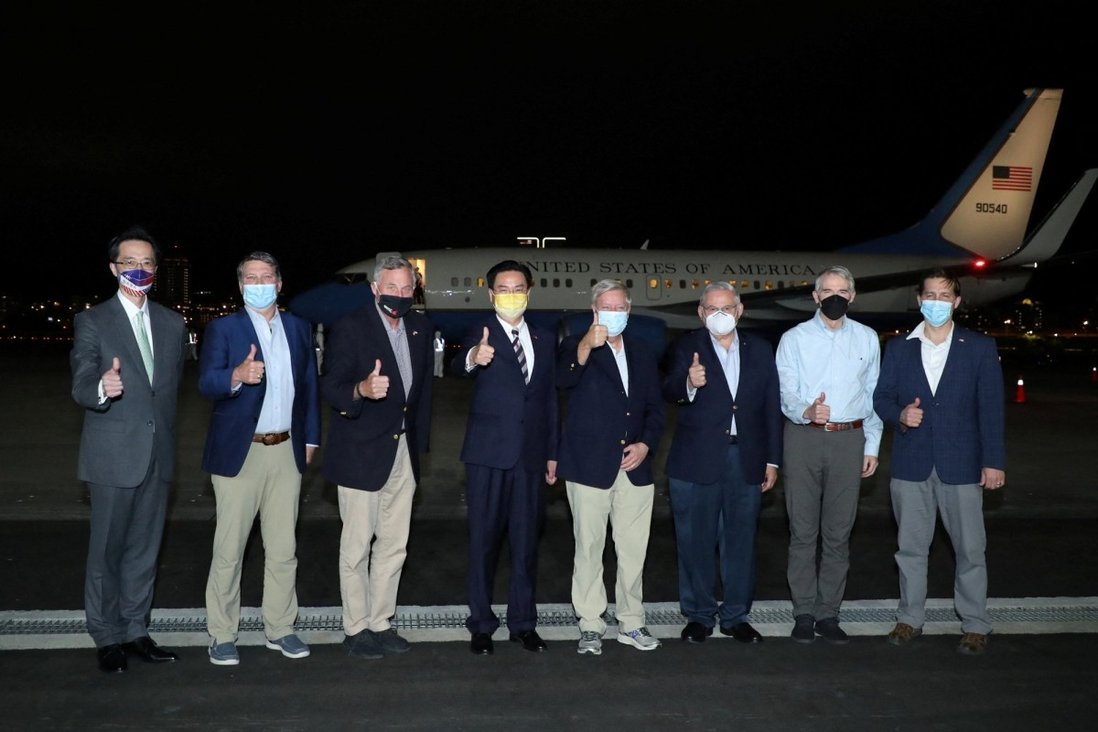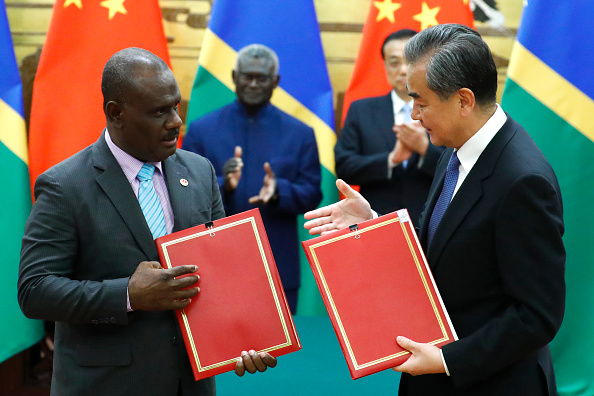
 "Persistence is Victory"
"Persistence is Victory"Almost 400 million people remain under some form of lockdown in China as officials try to stop the outbreak that's beginning to weigh on the world's second largest-economy. Shanghai remains the worst hit, with a record 27,000 Covid-19 cases reported Thursday and with some residents unable to leave their homes in over a month.
With thousands of passenger trains out of service, truckers refusing to enter the city for fear of being trapped, and lack of staff for delivery services, food shortages remain a problem, though there has been some improvement. Experts now predict that these lockdowns will worsen the ongoing supply chain problems that have plagued the global economy over the last two years. Prominent technology executives have also warned that the disruptions may result in production halts if the situation continues.
Chinese Premier Li Keqiang called for a "sense of urgency" about the growing economic risks during a meeting with provincial officials earlier this week. "We need to be highly vigilant for unexpected changes in the international and domestic situations, and downward economic pressure has further mounted," he said, as ongoing concerns arise about Beijing's ability to reach its target of 5.5 percent economic growth in 2022.
Despite these challenges, Xi Jinping emphasized that the country must stick with its zero-tolerance approach. "Prevention and control work cannot be relaxed," Xi said. "Persistence is victory."
Read more in "Will China Hit Its Growth Target?," by Shang-Jin Wei, a Professor of Finance and Economics at Columbia University.

(Photo: via Reuters)A Fine LineA bipartisan U.S. congressional group landed in Taiwan Thursday night for an unannounced two-day trip, with Beijing threatening "strong measures" in response. The six legislators are led by the chairman of the Senate Foreign Relations Committee, Bob Menendez, a Democrat from New Jersey, and include four Republican senators and one Republican congressman. The move is the latest in a string of such visits made by U.S. politicians to the island.
Washington's de facto embassy said the trip would encompass two days of discussions on "U.S.-Taiwan relations, regional security, and other significant issues of mutual interest." The legislators will meet with Taiwan's leader, Tsai Ing-wen, along with Foreign Affairs Minister Joseph Wu and defense officials.
The visit elicited an angered response from Beijing. Foreign ministry spokesman Zhao Lijian said "the Chinese side resolutely opposes any form of official exchange between the U.S. and Taiwan, and U.S. congressmen must also follow the U.S. government's one-China policy".
He also warned the U.S. against "walking further and further along a dangerous path" and said Beijing would take "forceful measures to resolutely uphold Chinese sovereignty and territorial integrity."
Read more in "How to Avoid War Over Taiwan," by Zhang Tuosheng, an Academic Committee Member at the Center for International Security and Strategy at Tsinghua University.
 Pacific Security
Pacific SecurityAustralia and the U.S. are urging the Solomon Islands to backtrack on a not yet officially signed security deal with Beijing that was agreed to in late-March, with growing concerns about China's footprint in the region. Both countries are worried that further relations with the South Pacific island nation could lead to Beijing establishing a military presence there, as the same U.S. delegation currently in Taiwan made clear on their recent trip to Australia. But as the West has historically had much influence over island networks, Beijing's analysts say it should have the same opportunity.
The Australian minister for International Development and the Pacific, Zed Seselja, said "We have asked Solomon Islands respectfully to consider not signing the agreement and to consult the Pacific family in the spirit of regional openness and transparency, consistent with our region's security frameworks."
Meanwhile, China has also expanded patrols in the East and South China Seas, according to Chinese state media. Most recently, it sent out its most advanced fighter aircraft, the J-20, a revamped jet that now uses domestically-produced engines and was introduced to the public last year. The deployment is intended to "better safeguard China's airspace security and maritime interests," the Global Times said. The staged exercises came as U.S. lawmakers arrived in Taipei for a series of discussions with Taiwan officials.
Prepared by China-US Focus editorial teams in Hong Kong and New York, this weekly newsletter offers you snap shots of latest trends and developments emerging from China every week, while adding a dose of historical perspective.
- 2022-04-08 No Divorce
- 2022-04-01 Auditing Accountability
- 2022-03-25 Playing Policy
- 2022-03-18 One Hand Cannot Clap
- 2022-03-11 Political Forecast
- 2022-03-04 Competitive Advantage
- 2022-02-25 A Sovereign Tightrope
- 2022-02-18 Strategic Disengagement
- 2022-02-11 In the Thick of It
- 2022-02-04 Year of the Tiger
- 2022-01-28 Zero-Sum
- 2022-01-21 An Uncertain Future
- 2022-01-14 Digital Advances
- 2022-01-07 The Dawn of a New Political Year
- 2021-12-17 Clamp Down
- 2021-12-10 Debating Democracy
- 2021-12-03 Managing Competition
- 2021-11-19 Responsible World Leadership
